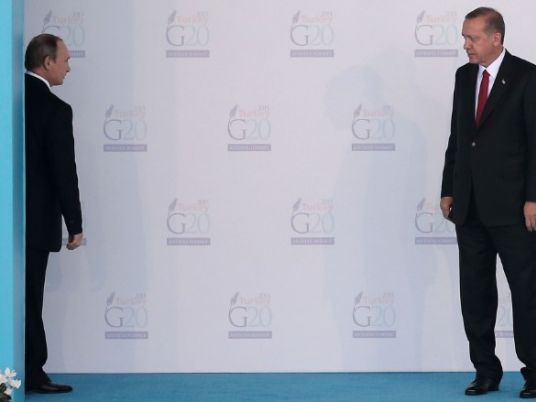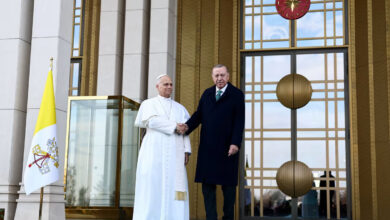
Gas pipes worth 1.8 billion euros (US$1.95 billion) are to be left stranded on the shores of the Black Sea after Russia's decision to suspend work on the Turkish Stream pipeline, a potent symbol of Moscow's falling out with Ankara.
Russia has set out to punish Turkey after it shot down a Russian warplane in Syria last week, imposing trade sanctions and releasing data it claims proves Turkish President Tayyip Erdogan is involved in illegal oil deals with Islamic State.
Russian Energy Minister Alexander Novak told reporters on Thursday work on Turkish Stream, a pipeline intended to pump Russian gas into southeastern Europe via Turkey while bypassing Ukraine, had been suspended.
Shortly afterwards, the head of Italian oil major Eni (ENI.MI), slated as one of the main buyers for the pipeline's gas, said the project was dead in the water.
The decision leaves Russian energy giant Gazprom (GAZP.MM) with miles of pipes only useable in the Black Sea.
It ordered pipes from as far afield as Japan and Germany for the 2,400-km (1,491-mile) South Stream pipeline, originally slated to open in 2018, which were then reassigned to Turkish Stream after the project was axed.
Industry sources said the pipes can only be used for projects in the Black Sea because of their specialized construction. Gazprom will now be forced to put the pipes in storage until tensions between Moscow and Turkey subside.
"These pipes were calibrated for a specific environment, pressure and capacity," said one source in the pipe-making industry. "Accordingly, they are only suitable for underwater pipelines in the Black Sea."
Gazprom was not available for comment.
Aborted predecessor
Although freezing work on Turkish Stream is largely symbolic – it has long been beset by delays and doubts over its viability – the financial implications for Gazprom are very real.
Sberbank analyst Valery Nesterov said Gazprom has spent between $12-14 billion on Turkish Stream and its aborted predecessor South Stream, which was abandoned last year in the face of European Union opposition and heightened tensions over the Ukraine crisis.
Questions have also been raised over the planned Nord Stream pipeline to Germany after a group of 10 European governments published a letter saying the project ran counter to European Union interests and risked destabilizing Ukraine.
"Again, the company is rapidly building a pipeline which might not be needed," said Nesterov.
Russia is one of the world's largest steel pipe producers, second only to China, and has the capacity to turn out more than 3 million tonnes of the large-diameter pipes typically used in major energy projects every year.
Russia's largest pipe maker, TMK (TRMK.MM), said Turkish Stream could be revived in the future.
"Turkish stream, as a project, is not completely finished," said TMK Vice-President Vladimir Shmatovich.
"Maybe in a year or two, when the tension decreases, it will be realized," he said. "But the pipes could lie on the ground for 50 years."




